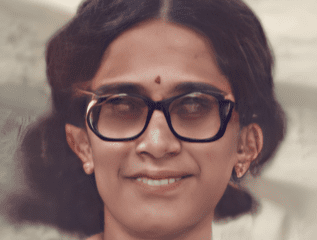
The Automated Condition. Manifestations and Narratives in Art, Literature and Culture
Professor of Media Philosophy and Critical Digital Practice at the Department of Digital Humanities, King’s College London Joanna Zylinska
May 11, 2022 · 12:00 pm—May 13, 2022 · 5:00 pm · 012 East Pyne or Zoom
German Department

The Automated Condition. Manifestations and Narratives in Art, Literature and Culture is an interdisciplinary hybrid graduate student conference in the German Department at Princeton University, organized in cooperation with graduate students at the Center for Cultural Studies at the University of Graz.
Driverless cars, social credit systems, or Twitter poetry bots: our increasingly technologically optimized and algorithmically organized existence informs an automated condition, a mode de vivre centuries in the making, in which spontaneity, ingenuity, and exceptionality are re-defined through the standardization of processes of labor, production, and consumption. Concomitantly, the flipside of the Fordian promise of total automation has become a bitter and unavoidable reality where automated systems upend the foundations of social interaction and artistic production alike.
Moving within a variety of manifestations and narratives, this interdisciplinary graduate conference wishes to both connect and cross-pollinate historical case studies on automation with theoretical perspectives on the conditions it produces. Collectively, literature, art, and culture can provide vital points of entry into the interrogation of life in the automated condition, question whether it is truly a fatal form of passivity, and offer a nuanced and holistic understanding of its promises and its possibilities.
Full conference program and list of co-sponsors can be found at german.princeton.edu
CO-SPONSORED BY the Departments of Art and Archaeology, Classics, Comparative Literature, French and Italian, Music, Slavic Languages and Literatures, the Programs in Early Modern and Renaissance Studies, European Cultural Studies, and Media + Modernity, the Centers for Collaborative History, Migration and Development and Information Technology Policy, the School of Architecture, and the Council of European Studies.
In collaboration with the FWF-funded project “Co-operative Art Techniques” at the Center for Cultural Studies, University of Graz.















